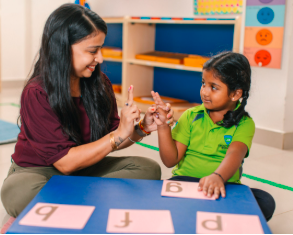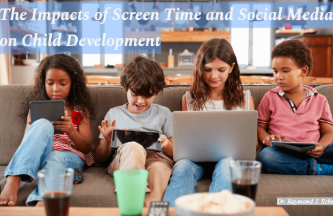The early years of a child’s life are a time of incredible growth, especially in language development. Vocabulary skills begin forming from infancy, and by the time children enter preschool, they are already absorbing and using hundreds of words. Helping young children build a strong vocabulary not only supports their communication but also plays a key role in future reading and academic success.
Why Vocabulary Matters
Vocabulary is more than just knowing words—it’s about understanding how to use them to express thoughts, ask questions, and connect with others. A rich vocabulary helps children:
-
Communicate their needs and emotions clearly
-
Understand and enjoy stories and conversations
-
Build confidence in classroom interactions
-
Lay the groundwork for reading comprehension
Early exposure to a wide range of words builds the mental framework children need to understand new ideas later in school.
Everyday Opportunities to Grow Language
Vocabulary-building doesn’t require flashcards or formal lessons. The best learning happens during natural, engaging interactions. Here are some simple ways caregivers and educators can encourage vocabulary growth:
1. Talk Throughout the Day
Describe what you and the child are doing. Use words to narrate daily routines, such as “Let’s zip up your jacket,” or “Now we’re slicing the apple.” Exposure to descriptive language builds understanding.
2. Read Aloud Regularly
Books introduce new words in meaningful contexts. Choose age-appropriate stories with rich vocabulary. Pause to explain new words and ask questions about the pictures or storyline.
3. Sing Songs and Say Rhymes
Rhymes and songs naturally repeat words and sounds, helping children remember them. This fun approach also builds phonemic awareness, an important pre-reading skill.
4. Encourage Conversations
Give children time to respond in conversations. Ask open-ended questions like “What did you see at the park?” instead of “Did you have fun?” This encourages them to use more words.
5. Explore New Experiences Together
Trips to the grocery store, park, or even the kitchen can expose children to new vocabulary. Talking about different fruits, animals, or cooking utensils makes learning concrete and enjoyable.
Supporting Children at Different Stages
Every child develops at their own pace, but here are some general vocabulary milestones:
-
Toddlers (1–3 years): Begin using single words and short phrases. Repetition and naming objects help build confidence.
-
Preschoolers (3–5 years): Start forming complete sentences, asking questions, and using more descriptive words. Reading and imaginative play are great tools at this stage.
-
Kindergarten-age (5–6 years): Use more complex sentences, retell stories, and express ideas with greater detail. Conversations and story-based learning are especially helpful.
Creating a Word-Rich Environment
Whether at home or in a classroom, creating a space filled with language promotes consistent growth. Label everyday items, display books within reach, and offer plenty of opportunities for children to listen and speak. Encouragement, patience, and positive reinforcement go a long way.
Final Thoughts
Building vocabulary in the early years is one of the most valuable ways to support a child’s overall development. When adults make language a natural part of play, storytelling, and routine, children learn without even realizing it. These early language experiences provide the stepping stones for strong reading, writing, and communication skills that will benefit them for years to come.


